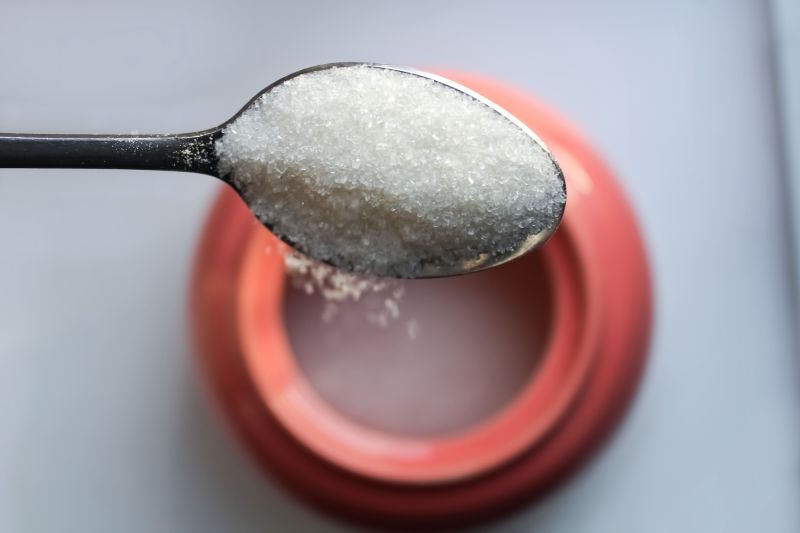The holiday season is nearly upon us and it’s easy for a child’s sweet tooth go wild. However, new research shows that it may be beneficial to cut back how much sugar young children consume.
A study published Friday in the journal Science found that reducing sugar in the first 1,000 days after conception – through gestation up to age 2 – may cut a child’s risk of chronic illnesses in adulthood.
The researchers found that reducing sugar consumption in this window decreased the type 2 diabetes risk by about 35% and the risk of high blood pressure by roughly 20%. They also found a delay in disease onset of four and two years, respectively.
The research team looked at data from before and after the end of the United Kingdom’s World War II-era sugar rationing in September 1953.
In January 1940, the UK began rationing to allow “fair shares” of food for the country during the wartime shortage, according to the Imperial War Museums. Access to foods like sugar, fats, bacon, meat and cheese was limited.
When the rationing of sugar and sweets ended in September 1953, the average adult’s daily sugar consumption in the UK nearly doubled almost immediately, from about 40 grams to 80 grams.
The researchers looked at health data from the UK Biobank, a large biomedical database and research resource that follows people long-term, on roughly 60,183 participants born between October 1951 and March 1956, before and after the end of the rationing, to determine the effects of such a large increase in sugar consumption.
“Sugar rationing created an interesting natural experiment,” said Tadeja Gracner, the lead author of the study and a senior economist at the Center for Economics and Social Research at the University of Southern California.
The analysis of a six-year period showed a 30% decrease in obesity risk for babies conceived or born during rationing, with a faster increase in type 2 diabetes and hypertension in those after the sugar ration ended.
The study also found that limiting sugar consumption in utero and in early life may cut down on a “lifelong preference” for sweets, with in utero rationing alone making up roughly one-third of the risk reduction.
“We are designed to like sweet things from the moment of birth,” said Dr. Mark Corkins, the division chief of pediatric gastroenterology and professor of pediatrics at the University of Tennessee Health Science Center, who was not involved with the new research.
For centuries, he said, humans turned to fruit to satisfy their sweet cravings while gaining vitamins and minerals along the way. Now, sugar has been refined and concentrated to such high levels that most people prefer a piece of chocolate cake over a peach, he said. These high consumption rates quickly affect our bodies.
“When you consume more sugar, it changes the way your metabolism works, and you start depositing and saving it,” Corkins said. “We’re designed to save food for periods of famine. We don’t have periods of famine anymore, so now we store it as fat.”
The amount of sugar consumed in the US is “extremely high,” he noted.
According to the federal Dietary Guidelines for Americans 2020-25, anyone 2 or older should limit their daily intake of added sugar to less than 10% of their total calories. Following these guidelines can be difficult, Gracner said.
“Added sugar is everywhere, even in baby and toddler foods, and children are bombarded with TV ads for sugary snacks,” Gracner said. “While improving nutritional literacy among parents and caregivers is key, we should also hold companies accountable to reformulate baby foods with healthier options and regulate the marketing and pricing of sugary foods targeted at kids.”
The researchers say in the new study that pregnant and lactating women consume more than triple the recommended amount of added sugar, on average, surpassing 80 grams per day.
The US Centers for Disease Control and Prevention also warns that many children ages 1 to 5 are not getting enough fruits and vegetables daily, but they are regularly consuming sugary drinks.
- Sign up here to get The Results Are In with Dr. Sanjay Gupta every Friday from the CNN Health team.
Corkins says one way for parents to reduce sugar consumption in young children is to change their own habits.
“The number one influence is parents,” he said. “They see what their parents eat, and kids tend to eat like their parents. If you want your child to have better habits, then you need to model those habits.”
Other ways to reduce sugar consumption include replacing sugary drinks with healthier alternatives or cutting them out altogether, and avoiding having sugary junk foods and drinks at home, where they may be more tempting. The key is practicing moderation when consuming sugary foods.
“We all want to improve our health and give our children the best start in life, and reducing added sugar early is a powerful step in that direction,” Gracner said. “With better information, environment and the right incentives, parents can more easily reduce sugar exposure, for kids and themselves.”

